Texas, the Lone Star State, is one of the most sought-after destinations for individuals and families looking to relocate. Known for its vibrant cities, booming economy, affordable living, and rich cultural heritage, Texas offers unique opportunities and experiences for people from all walks of life. From the fast-paced growth of its metropolitan areas to the serenity of its rural landscapes, the state is an ideal location for professionals, families, and retirees alike.
Beyond its natural beauty and cultural diversity, Texas also boasts a reputation for hospitality, innovation, and opportunity. Its business-friendly policies and low tax burden make it a magnet for companies and entrepreneurs, while its family-oriented communities provide a safe and welcoming environment for raising children.
In this guide, we’ll dive into the many reasons why Texas could be your ideal new home, discussing housing, job opportunities, education, and lifestyle. Whether you’re drawn to the urban excitement of Austin or the scenic tranquility of the Hill Country, this resource will help you prepare for a seamless transition to life in Texas.

Why Move to Texas?
Thriving Economy
Texas has one of the most robust and diverse economies in the United States. As the second-largest state by both area and population, its economic landscape is vast, encompassing industries such as energy, technology, agriculture, and healthcare. Houston, often called the energy capital of the world, plays a vital role in the global oil and gas sector, while Austin has earned the nickname “Silicon Hills” due to its booming tech industry.
For job seekers, Texas offers unparalleled opportunities. The state consistently ranks as a top destination for job creation, thanks to its low unemployment rates and an ever-expanding job market. Moreover, Texas’ lack of a state income tax allows professionals and business owners to retain more of their earnings, making it an attractive place to live and work.
Affordable Living
One of Texas’ greatest appeals is its affordability. Compared to other populous states like California and New York, the cost of living in Texas is significantly lower. Housing, in particular, is more affordable, with median home prices and rental rates below the national average in many areas.
For those looking to stretch their budgets further, smaller cities and rural areas in Texas offer even more economical options. Families, in particular, are drawn to Texas for its affordable housing, reasonable utility costs, and opportunities to build a comfortable lifestyle.
Diverse Culture
Texas is a cultural melting pot where people from all over the world come together to create a vibrant and inclusive community. From its festivals and food to its music and art, the state celebrates its diversity in every aspect of life.
In cities like San Antonio, you can immerse yourself in the rich history of Texas and its Mexican heritage, while Austin offers a more eclectic and modern vibe with its music festivals and tech-savvy atmosphere. Throughout the state, you’ll find cultural events like rodeos, Oktoberfest celebrations, and Chinese New Year festivals, reflecting the global influences that make Texas unique.
For food lovers, Texas is a paradise. Whether it’s authentic Tex-Mex, world-class barbecue, or farm-to-table dining experiences, the state’s culinary scene is as diverse as its people.
Outdoor Adventures
For those who love the great outdoors, Texas offers a variety of landscapes and activities. From the rugged beauty of Big Bend National Park to the pristine beaches along the Gulf Coast, the state has something for every adventurer.
Nature enthusiasts can explore the Piney Woods in East Texas, kayak along the Rio Grande, or hike the rolling hills of Hill Country. Fishing, camping, and birdwatching are popular activities, and Texas’ mild winters mean you can enjoy the outdoors year-round.
For urban adventurers, many cities boast extensive park systems and recreational areas. Austin’s Lady Bird Lake and Houston’s Buffalo Bayou Park are prime examples of urban green spaces designed to foster a love of nature.
Family-Friendly Appeal
Texas is an excellent choice for families, offering safe neighborhoods, quality schools, and plenty of recreational activities for children. Suburbs like Frisco and Plano, known for their family-friendly environments, are some of the fastest-growing areas in the state.
Communities often host local events like farmers’ markets, art fairs, and youth sports leagues, creating opportunities for families to connect and thrive. Additionally, the availability of large homes with spacious yards makes Texas ideal for families seeking room to grow.
Best Cities to Move to in Texas

Austin
The capital city of Texas, Austin, is a vibrant and dynamic destination that attracts people from across the country. Known as the “Live Music Capital of the World,” Austin is a hub for creativity and innovation. Its thriving tech industry has drawn major companies like Tesla and Google, making it a magnet for tech professionals.
Austin’s unique blend of culture, outdoor activities, and job opportunities makes it ideal for young professionals and families. Residents enjoy paddleboarding on Lady Bird Lake, hiking the Barton Creek Greenbelt, and attending iconic events like South by Southwest (SXSW).
Houston
As Texas’ largest city, Houston offers a cosmopolitan lifestyle with a touch of southern charm. The city’s economy is driven by industries like energy, aerospace, and healthcare, providing abundant job opportunities.
Houston is also a cultural powerhouse, boasting attractions like the Museum District, the Houston Zoo, and Space Center Houston. Its affordable suburbs, diverse food scene, and top-rated schools make it a popular choice for families.
Dallas-Fort Worth Metroplex
The Dallas-Fort Worth (DFW) Metroplex offers a perfect mix of urban sophistication and suburban comfort. Dallas is known for its booming business sector, while Fort Worth maintains its Western heritage with attractions like the Stockyards National Historic District.
The area’s excellent public transportation, vibrant nightlife, and highly-rated schools make it an appealing destination for individuals and families alike.
San Antonio
San Antonio is a city steeped in history and tradition. Home to iconic landmarks like The Alamo and the River Walk, it offers a blend of cultural experiences and modern conveniences.
San Antonio’s affordable housing, warm climate, and family-friendly atmosphere make it a favorite for retirees and young families.
Smaller Cities
For those seeking a slower pace of life, smaller cities like Frisco, McAllen, and Lubbock offer affordability and charm. These cities often feature tight-knit communities, excellent schools, and a lower cost of living, making them ideal for families or those looking for a quieter lifestyle.
Housing and Cost of Living in Texas
Housing Market Trends
Texas offers a dynamic and diverse housing market suitable for virtually every budget and lifestyle. From urban condos in bustling cities like Houston to sprawling ranch-style homes in the state’s quieter rural areas, residents have plenty of choices. Texas is also known for its relatively low median home prices compared to states like California or New York, making homeownership an achievable goal for many newcomers.
The demand for housing has increased in recent years, especially in metropolitan areas, fueled by the state’s population growth and thriving economy. Cities like Austin and Dallas have experienced a surge in housing developments, providing a mix of modern apartments, single-family homes, and luxury estates.
Renting vs. Buying
For newcomers, renting is often the first step while settling into life in Texas. Major cities like Austin and Dallas tend to have higher rental costs, yet they remain competitive compared to other large U.S. cities. Renting provides flexibility for those exploring different neighborhoods or not ready to commit to homeownership.
For those planning to stay long-term, buying a home in Texas is often a cost-effective decision. The state’s affordable housing market, combined with historically low mortgage rates, makes owning property more accessible. Suburban areas like Frisco, McKinney, and Sugar Land are particularly popular for their balance of affordability, amenities, and top-rated schools.
Property Taxes
Texas has no state income tax, which is a significant draw for many residents. However, property taxes in the state can be relatively high, varying by county and city. Homebuyers should research property tax rates carefully, as they can significantly affect the overall cost of owning a home.
Cost of Utilities
Utilities in Texas operate in a deregulated market, which means residents can choose their electricity and gas providers. This competition often translates to better rates and tailored plans for consumers. While the state’s hot summers can lead to higher electricity bills due to air conditioning usage, Texas’ mild winters help balance overall annual utility costs.
Job Market and Career Opportunities
Key Industries
Texas boasts one of the strongest economies in the nation, driven by diverse industries such as energy, technology, agriculture, manufacturing, and healthcare. The energy sector, particularly oil and gas, has long been a cornerstone of the Texas economy. Recently, the state has also emerged as a leader in renewable energy production, including wind and solar.
The technology sector is rapidly growing, with cities like Austin becoming hubs for innovation and entrepreneurship. Agriculture and healthcare also play significant roles, providing opportunities across a wide spectrum of professions.
Job Hotspots
- Austin: Known as “Silicon Hills,” Austin is a hotspot for tech jobs, hosting major companies like Apple, Dell, and Tesla. Its vibrant startup culture attracts entrepreneurs and young professionals alike.
- Houston: The energy capital of the world, Houston is a leader in the oil, gas, and healthcare sectors. The Texas Medical Center, the largest medical complex in the world, is a major employer.
- Dallas-Fort Worth: A hub for finance, telecommunications, and retail, the DFW area offers opportunities in a variety of industries. Its central location also makes it a key transportation and logistics hub.
Remote Work Opportunities
With the rise of remote work, Texas has become an attractive destination for professionals seeking affordable housing and a high quality of life. Many cities are equipped with excellent internet infrastructure, coworking spaces, and communities that support remote workers. This trend has allowed individuals to enjoy Texas’ low cost of living while working for companies across the globe.
Education and Schools in Texas
Public Schools
Texas is home to many highly-rated public school districts, particularly in suburban areas like Plano, Frisco, and Southlake. These districts are known for their strong academic programs, extracurricular activities, and facilities that support a well-rounded education. Advanced Placement (AP) programs and gifted and talented initiatives are widely available, providing opportunities for students to excel academically.
Higher Education
For those pursuing higher education, Texas offers some of the best universities and colleges in the country. Institutions like the University of Texas at Austin, Texas A&M University, and Rice University are renowned for their academic excellence and research opportunities. These universities offer diverse programs ranging from engineering and business to the arts and sciences, attracting students from around the globe.
School Choice
Parents in Texas have a variety of educational options beyond traditional public schools. Charter and magnet schools are popular choices, offering specialized programs in STEM, the arts, and more. Private schools and homeschooling are also supported, allowing families to customize their child’s education according to their needs and values.
Whether you are looking for strong academic programs, extracurricular opportunities, or a specialized curriculum, Texas provides options to ensure children receive a quality education.
Understanding the Texan Lifestyle

Texas is more than just a state; it’s a way of life. From its famous Southern hospitality to its deep-rooted traditions, the Texan lifestyle is as diverse as its landscapes. Whether you’re moving to an urban hub or a small town, there’s something uniquely Texan waiting for you.
Texan Hospitality
One of the first things newcomers notice about Texas is the warmth of its people. Texans are known for their friendliness, generosity, and strong sense of community. It’s common to experience small gestures of kindness, like neighbors offering to help you move in or strangers striking up a friendly conversation at the store. This welcoming attitude makes it easy for newcomers to feel at home.
Sports Culture
Sports are a major part of life in Texas. High school football, often dubbed “Friday Night Lights,” is practically a religion in many communities. College sports also hold a special place, with teams like the Texas Longhorns and Texas A&M Aggies enjoying fervent fan support.
On the professional level, Texas is home to iconic teams such as:
- Dallas Cowboys (NFL) – The legendary “America’s Team.”
- Houston Rockets (NBA) – Known for their competitive basketball legacy.
- Texas Rangers (MLB) and Houston Astros (MLB) – Favorites among baseball fans.
- Dallas Stars (NHL) – For hockey enthusiasts.
No matter where you live in Texas, sports bring communities together, creating a sense of pride and camaraderie.
Festivals and Events
Texas knows how to celebrate, and its festivals and events reflect its vibrant culture. Some of the most famous include:
- The State Fair of Texas: Held annually in Dallas, this is the largest state fair in the U.S., featuring food, rides, and entertainment.
- South by Southwest (SXSW): A globally renowned festival in Austin celebrating music, film, and interactive media.
- Fiesta San Antonio: A city-wide event honoring the rich cultural history of San Antonio with parades, music, and food.
These events offer the perfect opportunity to immerse yourself in Texan traditions and meet new people.
Transportation in Texas
Given the sheer size of Texas and the layout of its cities, transportation is an essential consideration for anyone moving to the state.
Public Transit
Texas’ major cities, including Dallas, Houston, and Austin, offer public transit systems. These include buses, light rail, and commuter trains. For example:
- Dallas Area Rapid Transit (DART) provides bus and rail services in the Dallas area.
- Houston METRO offers bus and light rail systems, connecting key areas of the city.
- Capital Metro serves the Austin area with buses and commuter rail options.
While these systems are convenient for commuters, public transportation in Texas is not as extensive as in states like New York or California. In smaller cities and rural areas, public transit options are limited or nonexistent, making car ownership almost a necessity.
Car Culture
Texas is synonymous with car culture. With sprawling cities and long distances between towns, owning a car is essential for most residents. The freedom to drive allows Texans to enjoy road trips to the Gulf Coast, the Texas Hill Country, or other iconic destinations. Additionally, Texas has some of the widest highways and best-maintained roads, making driving relatively hassle-free.
Highways and Toll Roads
Texas is home to an extensive highway system, including famous routes like Interstate 35 (I-35) and Interstate 10 (I-10), which connect major cities. Many urban areas also feature toll roads, which can be a faster alternative during peak traffic hours. While tolls can add up, they are a small price to pay for reduced commute times.
For those new to Texas, understanding the toll system and using tools like electronic toll tags can simplify driving across the state.
Weather and Natural Disasters in Texas

Climate
Texas is known for its varied climate, offering something for everyone. The state’s size means its weather can differ dramatically depending on where you live.
- West Texas: This region has an arid, desert-like climate with low humidity. Summers are hot, and winters are mild, making it ideal for those who enjoy drier conditions.
- Central Texas: The climate is more temperate, with occasional rainfall. Cities like Austin and San Antonio experience hot summers and mild winters.
- Coastal Texas: Near the Gulf of Mexico, places like Houston and Corpus Christi are humid and tropical. Summers can be steamy, while winters are relatively warm.
During the summer months, temperatures across the state often exceed 100°F. Spring and fall offer more moderate temperatures and are considered the best times of the year to enjoy outdoor activities.
Natural Disasters
Texas is prone to various natural disasters, and understanding the risks specific to your region is crucial:
- Hurricanes: Coastal areas are especially vulnerable during hurricane season (June through November). Cities like Houston and Galveston often experience heavy rainfall and flooding due to tropical storms.
- Flooding: Flash floods are common across Texas, even in areas not directly impacted by hurricanes.
- Tornadoes: Central and North Texas lie within Tornado Alley, making tornado preparation an essential part of living in these regions.
To stay safe, invest in emergency kits, follow local weather alerts, and ensure your home is equipped for potential disasters, such as reinforced roofs or flood barriers.
Healthcare in Texas
Texas is home to some of the most advanced healthcare facilities in the world. Whether you’re in a major city or a smaller town, you’ll find a wide range of medical services.
- Renowned Hospitals: The state boasts world-class institutions like the Texas Medical Center in Houston, the largest medical complex globally, offering cutting-edge treatments and research opportunities.
- Specialized Care: Retirement communities across Texas offer excellent senior care, with many facilities providing specialized services for aging populations.
- Access to Care: While urban areas like Dallas, Austin, and San Antonio offer numerous healthcare options, rural areas may have limited access. However, telemedicine is growing in popularity and can bridge this gap for residents in remote locations.
For those moving to Texas, researching nearby medical facilities and understanding your health insurance options will ensure you’re well-prepared for any healthcare needs.
Legal Considerations for Moving to Texas
Relocating to Texas involves several legal steps to establish residency:
- Driver’s License: New residents must apply for a Texas driver’s license within 90 days of moving. Visit your local Department of Public Safety (DPS) office to complete the process.
- Vehicle Registration: Register your vehicle with the Texas Department of Motor Vehicles (DMV) within 30 days of establishing residency.
- Property Laws: If you’re purchasing a home, familiarize yourself with Texas property laws and homeowner association (HOA) regulations, which vary by community.
- Tenant Rights: Renters should understand their rights under Texas law, including lease agreements, eviction processes, and security deposit policies.
Tips for a Smooth Move to Texas
- Hire a Reputable Moving Company: Partnering with a trustworthy moving service is essential. Explore platforms like Ace Interstate Moving, which connects you with top-rated movers to simplify your relocation.
- Pack Smartly: Texas’ diverse climate requires preparation. Bring lightweight, breathable clothing for summer and a few warmer items for cooler winter months. Sun protection, like hats and sunscreen, is a must.
- Set Up Utilities Early: Ensure your new home is ready for move-in by arranging electricity, water, and internet services before your arrival. Texas offers deregulated utilities, so you can compare providers for the best rates.
- Emergency Preparedness: Prepare for the possibility of natural disasters by creating an emergency kit and understanding local evacuation routes if necessary.
Why Choose Ace Interstate Moving?
If you’re planning to relocate to Texas, Ace Interstate Moving is your ultimate resource. As a leading moving company listing website, Ace provides a curated list of reliable movers tailored to your needs. Whether you’re moving long-distance or within Texas, their platform simplifies your search for top-rated, insured, and affordable moving companies.

Ace Interstate Moving goes beyond just listings—we provide expert tips, moving guides, and personalized recommendations to ensure a hassle-free relocation experience.
Conclusion
Texas is a state of opportunity, diversity, and unparalleled charm. Whether you’re seeking a thriving job market, affordable living, or a welcoming community, Texas has it all. Use this guide to plan your move, and let Ace Interstate Moving help you every step of the way. Start your Texas adventure today!








One Response
Thanks for sharing. I read many of your blog posts, cool, your blog is very good.